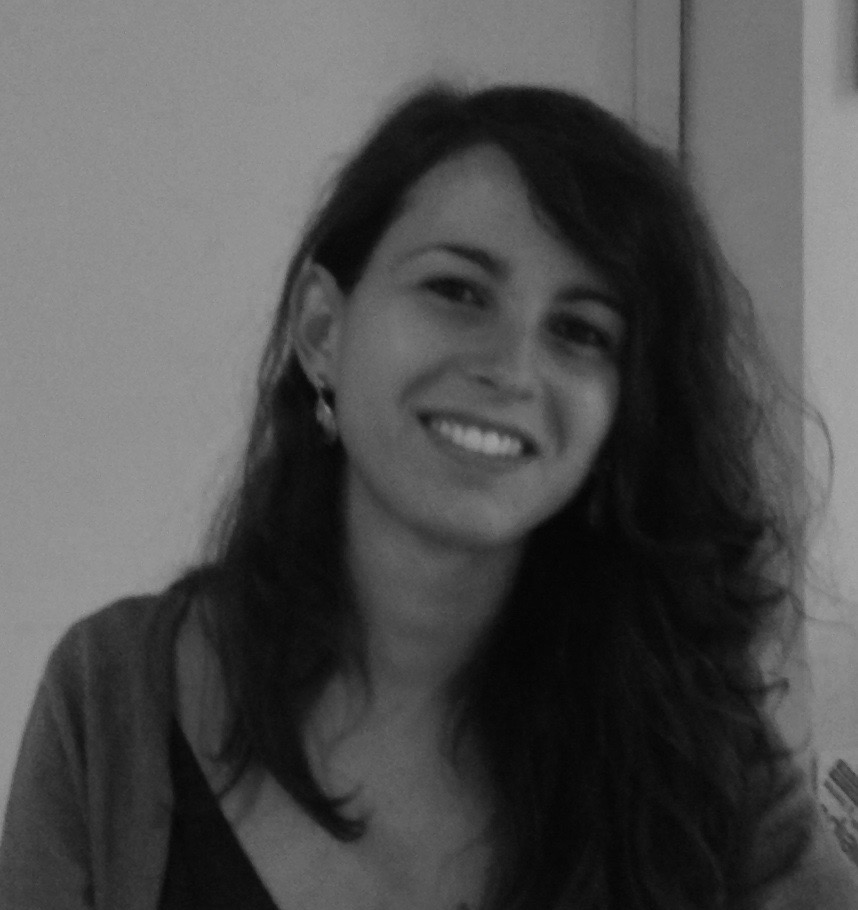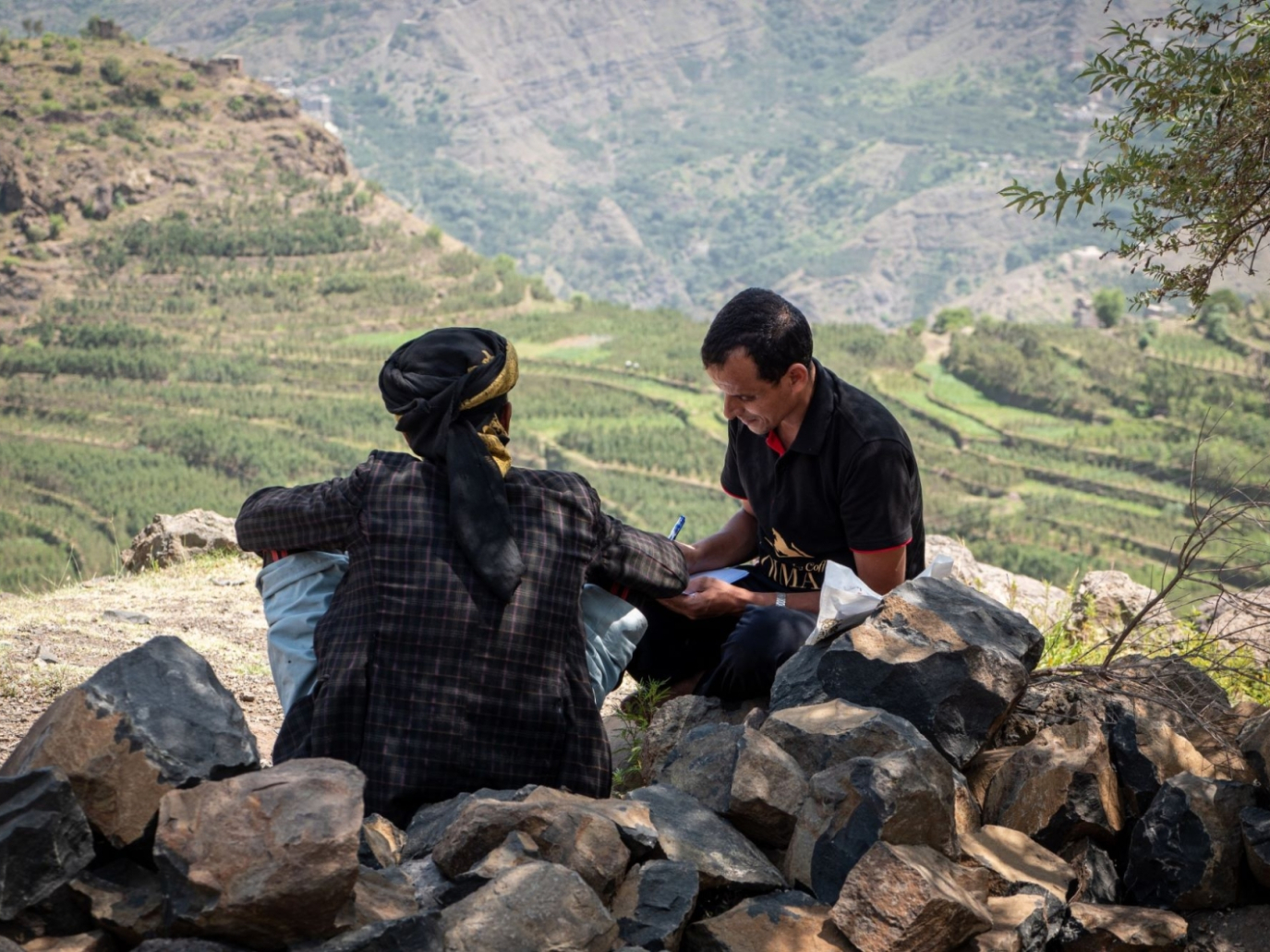Extreme weather conditions, increasing temperatures, and decreasing rainfall are putting unprecedented stress on coffee plantations in Yemen. In the country's mountainous regions, where coffee crops are a vital part of the local economy, Fondazione Lavazza and Qima Foundation's I Primi project aims to tackle these water challenges and more. Harnessing climate data, advanced technology, and ancient water management techniques, the project is an attempt to ensure a sustainable future for Yemen's coffee growers.
I Primi - "The First"
The local and mountain economy cannot survive without agricultural development, especially in remote areas that are suffering a greater impact from climate change. In countries like Yemen, growers face significant depletion of groundwater reservoirs and limited availability of surface water. These challenges impact coffee crops and, consequently, growers' incomes.
To study water scarcity, Qima Foundation acquired 20 years of monthly climate data for the whole of Yemen, collecting information on 5,680 locations and over one million detection points. The data show that Yemen is the most arid country in the world for coffee cultivation, with annual precipitation under 400 mm, while also highlighting a 63% loss of potentially suitable arable land.
On this basis, in 2021, Fondazione Lavazza – in collaboration with Qima Foundation, which has been working for over a decade to restore Yemen's prosperity – launched I Primi ("The First") to support 1,500 small coffee growers, 60% of whom are women. In a context where 50% of household income depends on coffee, according to the first national survey on the sector, the resilience of the local economy is closely tied to sustainable agricultural development.
Resilient water management
Improving rainwater management in mountainous regions, where coffee is mostly grown, and improving growing techniques are the two crucial elements for the development of this Middle Eastern nation. To this end, Qima Foundation and Fondazione Lavazza reintroduced ancient water management techniques, particularly terraces, which significantly reduce water runoff and retain it within the terraced areas.
However, terraces alone are not enough to meet water needs. The project aims to build dams and non-invasive rainwater storage tanks to obtain sustainable water sources. These structures contribute to increasing water availability for domestic use, agriculture, and the replenishment of groundwater reservoirs, thus reducing the unsustainable pressure on groundwater extraction, which currently surpasses the replenishment rate. The first tank, built using a geomembrane, has a capacity of 900 cubic metres, serves the needs of 214 growers, and costs one-sixth compared to traditional methods.
Coffee-growing innovation
In 2022, Qima Foundation created a model farm to test and publicise production innovations, such as irrigation methods and densification practices. For example, different varieties of Arabica are being tested in the model farm to identify those most suited to local conditions, with demonstrations of agro-forestry systems that integrate Toona trees in coffee plantations and the implementation of an artificial shading system to protect crops from yearly hailstorms, which often damage high-altitude plantations.
At the same time, the country's largest plant nursery has been designed, with a production capacity of 150,000 plants, to grow coffee that is genetically verified through DNA analysis technology. Furthermore, two new facilities are under construction: a pre-processing plant, the Lavazza National Coffee Center (LNCC), in Otmah, and an advanced processing centre in Sana'a, with an annual capacity of 150 tonnes of coffee cherries across a 2,500 sqm floorplan.
The I Primi project is a key part of the work of the Fondazione Giuseppe e Pericle Lavazza to promote sustainability in the coffee sector. This commitment is highlighted by the recent establishment of the Centre for Circular Economy in Coffee. Founded in Turin on the Lavazza Foundation's initiative, in collaboration with the Polytechnic University of Turin and the University of Gastronomic Sciences in Pollenzo, the Center for Circular Economy in Coffee is a global pre-competitive platform. Its goal is to enhance and raise awareness of the principles and practices of circular economy in the coffee sector, contributing to the creation of a more sustainable future.
DOWNLOAD AND READ THE NEW ISSUE OF RENEWABLE MATTER: MOUNTAIN
This article is also available in Italian / Questo articolo è disponibile anche in italiano
Images: Lavazza
This content is produced thanks to the support of sponsors



